Will the attempted assassination of Trump shape the outcome of the upcoming US election?
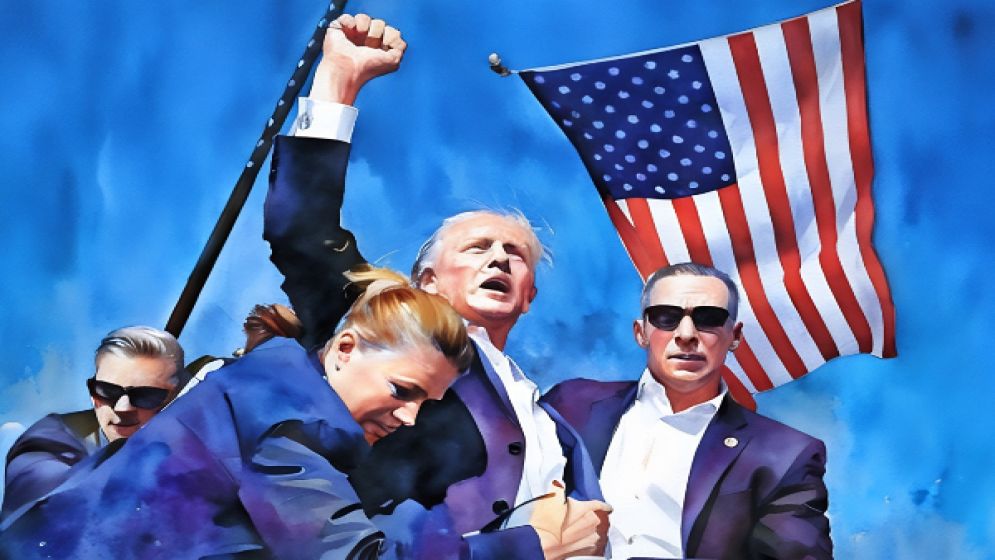
Political strategists often refer to defining "moments" in election campaigns that permanently alter the political landscape, demanding an immediate shift in strategies.
The moment captured in Pennsylvania,
where Donald Trump, bloodied yet defiant, pumped his fist before a crowd, with
the word "fight" seemingly on his lips against an American flag
backdrop under a glaring sun, will undoubtedly be remembered as one of those
defining moments of our time.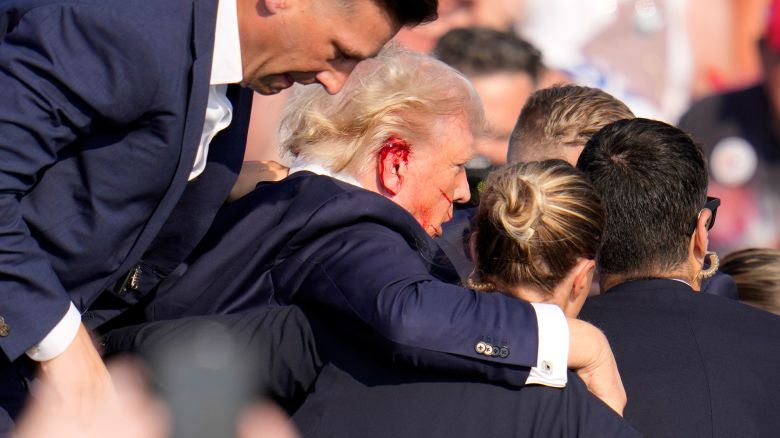
The recent assassination attempt on the
former US president during a rally has dramatically disrupted an already
tumultuous and unpredictable campaign, marked by intense rhetoric and polarized
beliefs.
It also seems to have decisively shifted the political landscape in Trump's favor as the November elections approach in the world’s most powerful country.
Surviving a gunshot that grazed his ear, Trump is currently recuperating at his New Jersey golf course. The narrative he has long propagated — that he is constantly under threat — suddenly gained credibility when a shooter opened fire on the 78-year-old Republican presidential candidate mere minutes into his speech.
For many of his fervent MAGA (make America great again) supporters, this incident further solidifies Donald Trump as a martyr for their cause, portraying him as the ultimate survivor. One of his loyal GOP followers described him as unstoppable.
Most of Trump's Republican allies also portrayed him as a hero, highlighting the image of him with a bloody ear and raised fist, seemingly uttering "Fight! Fight! Fight!"
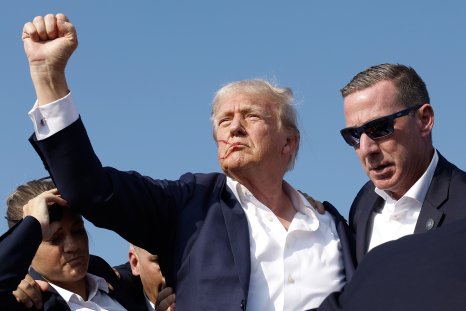
Republicans cashing in
Trump has frequently employed confrontational language with his supporters, but now advisors and allies of the former president have turned the tables on his Democratic rival, President Joe Biden, suggesting that Biden's demonization of Trump precipitated the assassination attempt.
"Today's events are not isolated. The core message of the Biden campaign is that President Donald Trump is an authoritarian fascist who must be opposed at all costs. This rhetoric directly provoked the attempted assassination of President Trump," remarked U.S. Senator J.D. Vance of Ohio, a leading contender to become Trump's vice presidential running mate, in a statement on X.
In the immediate aftermath, the assault is poised to amplify Trump's presence in Milwaukee this week during the Republican National Convention as he officially accepts his party's presidential nomination, reinforcing the grievances and sense of alienation his supporters already harbor towards the political establishment.
Shortly after the incident, Trump's campaign promptly sent out a text message urging voters to contribute to the campaign, asserting, "They're not targeting me, they're targeting you."
Billionaires Elon Musk and Bill Ackman swiftly expressed their endorsement of Trump as well. Musk declared on X, the social media platform he owns, "I fully endorse President Trump and wish him a speedy recovery."
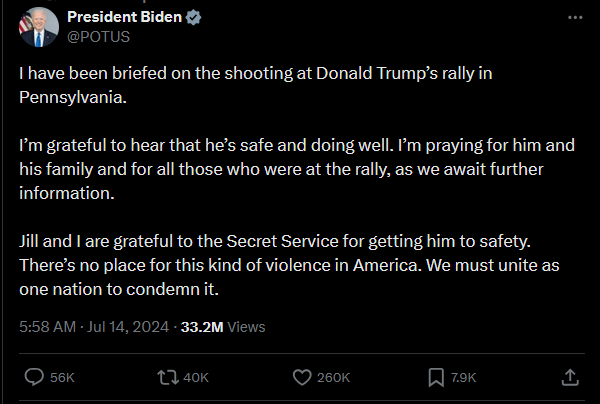
Democrats in disarray
Meanwhile, Democrats are grappling with internal discord as President Joe Biden, aged 81, continues to hold on despite mounting concerns about his age and mental sharpness, prompting increasing calls for him to step aside.
While Biden has temporarily faded from the spotlight, his control over unfolding events appears to be slipping even further. This lack of command is deeply troubling for Western democracies that look to the leader of the free world for stability and clarity.
Several Democrats remarked on Saturday that the assassination attempt at former President Donald Trump's Pennsylvania rally has effectively paused any moves to replace President Joe Biden, at least for the time being.
"I think it’s done," commented a close ally of Biden. "We've lost all momentum."
Prior to the shooting incident that wounded Trump, resulted in the death of an attendee, and injured another, Biden had been engaged in a campaign to repair damage following a disastrous presidential debate on June 27.
In an effort to quell calls for his withdrawal as the presumptive Democratic nominee, Biden held caucus calls with various groups of House Democrats on Saturday, intending to address concerns. Instead, the calls left many elected officials dissatisfied.
"A longtime Democratic strategist, experienced in multiple presidential campaigns, described the situation to NBC: “They were already having a very challenging political day, and then this supernova event occurred. Now, everything has come to a standstill. If you're advocating for discussions about whether it's time for the old man to step aside, it's incredibly difficult to broach that topic publicly. This event has completely overshadowed everything right now.”
Instead of waiting for potential calls from Congress urging him to resign, Biden instead assumed the presidential role, addressing the nation in a live televised speech where he unequivocally denounced violence.
“There's absolutely no place in America for this kind of violence; it's sickening, it's sick,” Biden declared. Returning to a central theme dating back to his initial presidential campaign in 2019, he added, “This is one of the reasons why we must unite this country.”
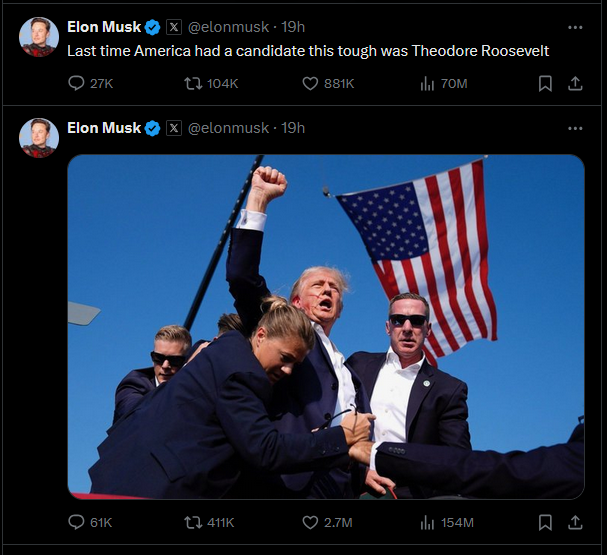
Global trend or what?
Globally, we are witnessing the repercussions of political polarization, fueled by the spread of misinformation and amplified by social media.
This divisive climate has led to a surge in violence against political leaders worldwide,spanning Asia, Europe, and South America.
In May, Slovakia's Prime Minister Robert Fico, a populist leader akin to Trump, survived an assassination attempt.
Instead of fostering unity, he exploited the incident to further his attacks on political opponents and the media, demonstrating how such events can exacerbate existing divisions.
The parallels between these global events and the United States are striking. The 2018 assassination attempt on Brazil's Jair Bolsonaro, a figure often compared to Trump, serves as a chilling reminder of the potential consequences of extreme political polarization.
The far-right leader was attacked with a knife to the abdomen during a campaign rally just a month prior to the elections.
This pivotal moment galvanized his supporters and catapulted him into office. In a message posted on X, Bolsonaro, a strong supporter of Trump, assured him, "I'll see you on inauguration day."
—

